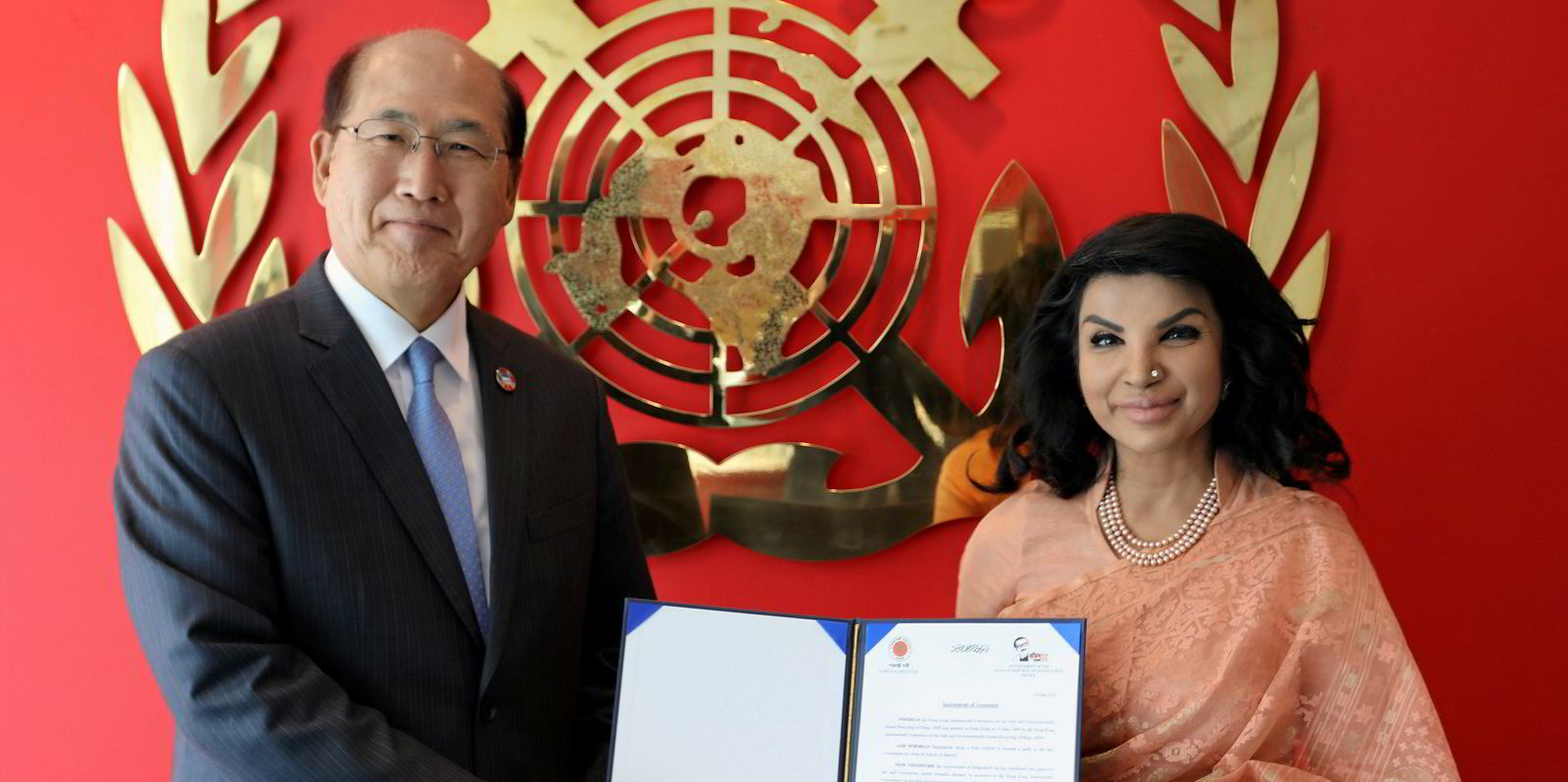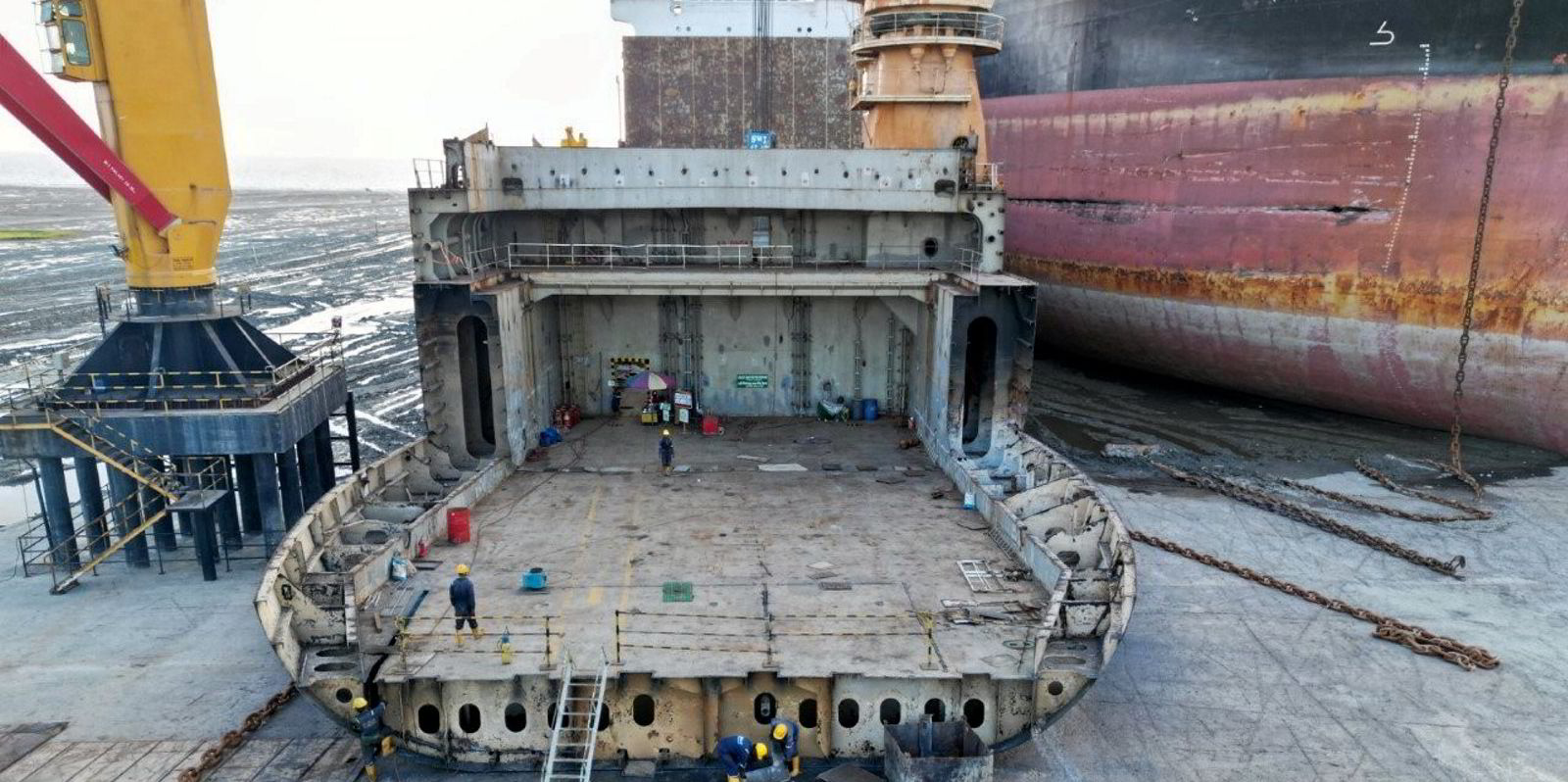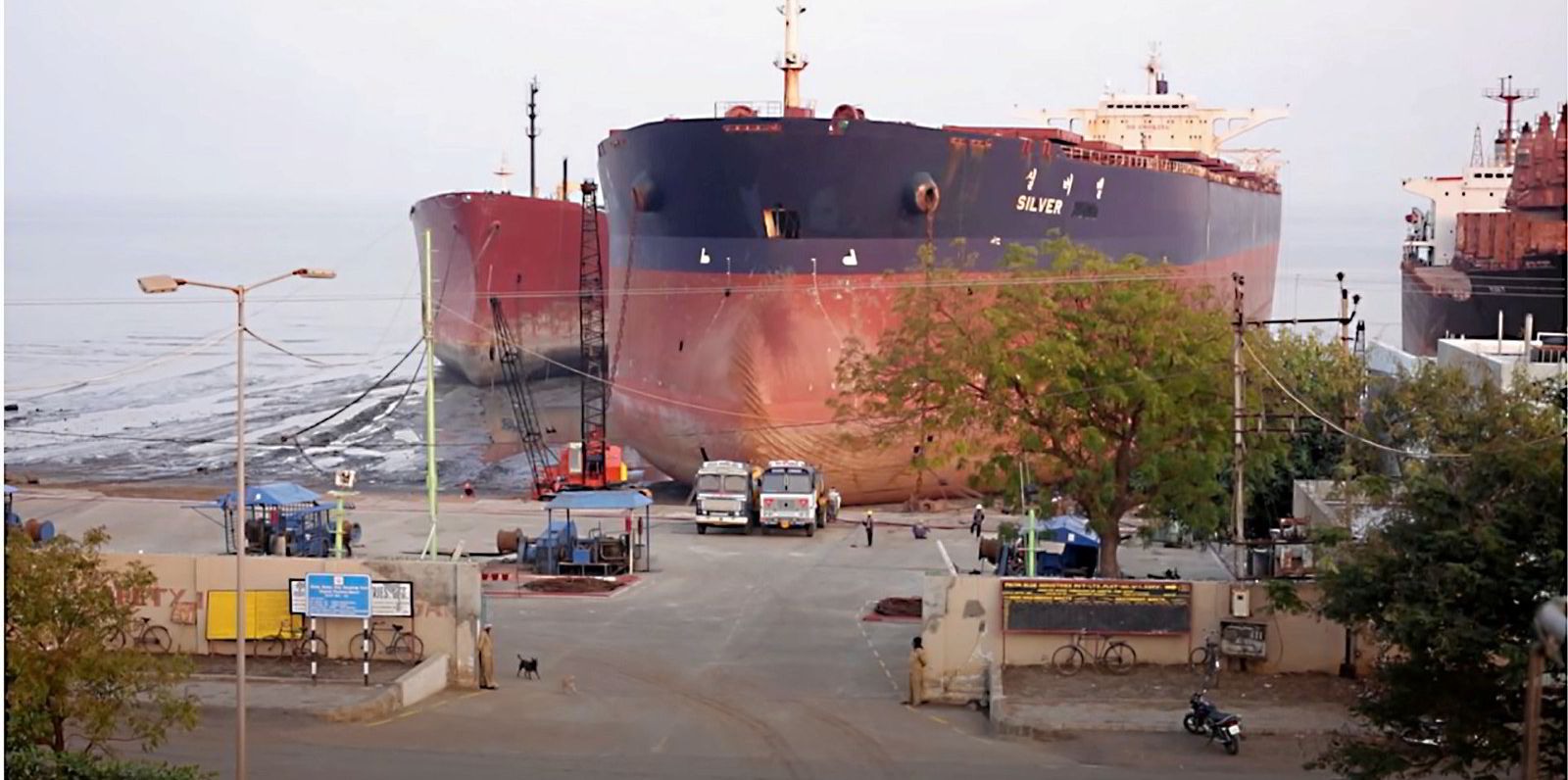The Hong Kong Convention for the Safe and Environmentally Sound Recycling of Ships (HKC) is expected to be mandated on Monday when Bangladesh and Liberia hand over their ratification documents to the International Maritime Organization (IMO) in London.
Recycling sector sources with knowledge of development taking place behind the scenes at the IMO told TradeWinds that Bangladesh will hand over the HKC ratification instruments to IMO secretary general Kitack Lim at 11am GMT, with Liberia doing the same at 3pm.
By signing up to the HKC, Bangladesh and Liberia have completed the two final missing pieces of the puzzle for the convention, which was rubber-stamped by the IMO in 2009.
The two countries bring number of ratifications required from both the recycling and flag-state sides to above the threshold required for bringing the convention into force.
It brings to a close a long gestation process for a convention designed to raise ship recycling standards worldwide that was initially met with either resistance or a lacklustre response from IMO member states.
On many occasions, it looked unlikely that the required threshold would ever be met.
The HKC enters into force two years after the required number of ratifications is in place, giving ship recyclers time to upgrade their standards before it becomes international law.
Nikos Mikelis, who was closely involved in developing the HKC through the IMO and is considered one of its main architects, told TradeWinds last week that there are still issues to resolve around the need for governments to align the HKC with regulations such as the Basel Convention for the Transboundary of Movement of Hazardous Waste and the European Union’s Ship Recycling Regulation (SRR).
The EU’s SRR has a clause with allows its terms to be revised 18 months before the HKC enters into force, which could allow for some alignment.
Under the Vienna Convention, there is also an “equivalency” clause which allows states to adopt the most recent regulation when two regulations such as the HKC and the Basel Convention clash.
The NGO’s Shipbuilding Platform’s founder Ingvild Jensen also told TradeWinds correspondent Adam Corbett that the entry-into-force of the convention will allow for the reopening of the text.
“We will be calling for changes so that it meets expectations for sustainable ship recycling, labour rights and circular economy objectives,” she said.
However, the developments did little to raise the mood of the subcontinent recycling sector, where markets continue to remain subdued due to the arrival of the summer monsoon season, low steel plate prices, and the ongoing financial challenges in Bangladesh and Pakistan.
The latest recycling market reports indicate that only an LNG carrier, a small LPG carrier and a research survey vessel were sold for demolition over the past week.





